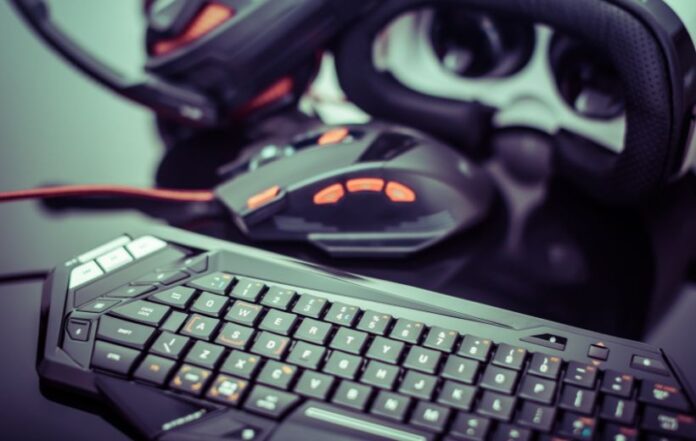In the rapidly evolving landscape of PC gaming, the term EGamer has come to represent not just skill and dedication but also a growing awareness of the importance of digital well-being. For many players, long gaming sessions are a regular part of life, especially in competitive environments or during immersive single-player campaigns. While gaming offers mental stimulation, problem-solving opportunities, and social connections, it also presents challenges that can impact physical health, mental clarity, and overall well-being. Recognizing these challenges, EGamers have started to reflect critically on the practices and strategies that can help maintain a healthy balance during extended hours in front of a screen.
One of the primary concerns for EGamers during long sessions is physical health. Extended gaming often involves prolonged periods of sitting, which can contribute to back pain, poor posture, and repetitive strain injuries in the wrists and hands. EGamers have increasingly emphasized the importance of ergonomic setups, including adjustable chairs, wrist supports, and monitor positioning at eye level to reduce strain. Additionally, regular stretching and micro-breaks can help alleviate tension and prevent long-term musculoskeletal issues. Incorporating physical activity into daily routines is not only beneficial for the body but also has a positive impact on cognitive functions such as focus and reaction time, which are crucial for high-level gameplay.
Mental well-being is another critical aspect that EGamers consider when reflecting on long gaming sessions. Extended exposure to fast-paced games can lead to heightened stress, irritability, and even gaming fatigue. To counteract these effects, EGamers often practice mindfulness techniques, such as deep breathing exercises or short meditation sessions between matches. These practices help reduce anxiety and maintain concentration, ensuring that gaming remains an enjoyable and mentally stimulating activity rather than a source of stress. Moreover, EGamers frequently advocate for setting gaming limits and using tools to monitor screen time, allowing them to balance gaming with other essential life activities like social interaction, work, or education.
Sleep hygiene is closely tied to digital well-being, and EGamers are particularly aware of its importance. Late-night gaming can disrupt circadian rhythms, leading to sleep deprivation, decreased cognitive performance, and overall fatigue. EGamers often implement strategies such as limiting screen exposure before bedtime, using blue light filters, and establishing consistent sleep schedules to ensure restorative rest. Prioritizing sleep not only enhances gaming performance but also supports long-term mental and physical health. Many professional EGamers now treat sleep as an essential component of their training regimen, recognizing that even the most intense practice cannot compensate for inadequate rest.
Nutrition and hydration are frequently overlooked yet vital aspects of long-term gaming wellness. EGamers emphasize the importance of balanced meals and regular hydration to maintain energy levels, concentration, and overall stamina. Snacking on high-sugar foods or relying on energy drinks may offer temporary boosts but can lead to crashes, irritability, and long-term health concerns. EGamers often prepare nutritious snacks, stay hydrated, and integrate healthy eating habits into their gaming routines to sustain performance over extended sessions. These habits reflect a broader recognition that physical well-being directly influences mental acuity and in-game decision-making.
Social connections are another element of digital well-being that EGamers prioritize. Online gaming communities provide opportunities for collaboration, competition, and camaraderie, but excessive isolation can negatively affect mental health. EGamers often advocate for balancing online interactions with offline social engagement, ensuring that relationships outside the gaming world remain strong. This balance reinforces emotional resilience and fosters a more fulfilling gaming experience, as players can enjoy gaming as a shared activity rather than a solitary pursuit.
Furthermore, EGamers are increasingly attentive to the quality of their gaming environments. Ambient lighting, reduced screen glare, and comfortable seating arrangements contribute to both physical comfort and mental focus. Creating a dedicated gaming space that supports well-being reflects a conscious effort to integrate healthy practices into what might otherwise be an intensive, sedentary activity. EGamers recognize that the environment can significantly impact mood, energy, and overall engagement during prolonged sessions.
In conclusion, EGamer reflections on digital well-being highlight the growing awareness of health-conscious practices in the gaming community. Physical ergonomics, mental mindfulness, sleep hygiene, nutrition, social balance, and environmental optimization are all critical factors in sustaining long PC gaming sessions without compromising overall health. By incorporating these strategies, EGamers demonstrate that gaming can be both immersive and sustainable, combining passion with responsibility. As gaming continues to evolve as a central cultural and recreational activity, the lessons learned from EGamers’ commitment to digital well-being can serve as a model for players worldwide, ensuring that gaming remains a source of enjoyment, skill development, and personal growth.
This reflection underscores the idea that being a dedicated EGamer is not only about high scores and achievements but also about cultivating habits that support long-term health and performance. In this way, digital well-being becomes a core component of modern gaming culture, and EGamers are leading the way in demonstrating that mindful practices can enhance both the gaming experience and life outside the screen.




